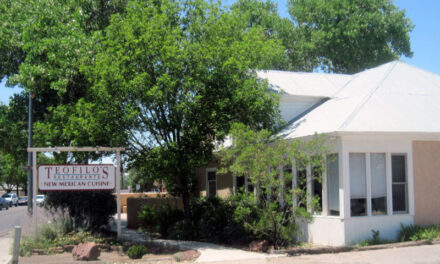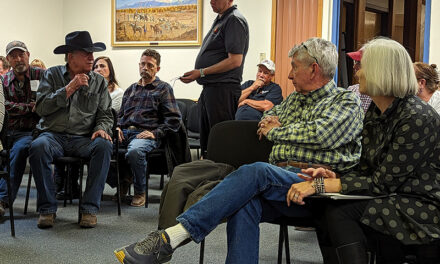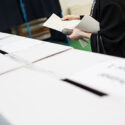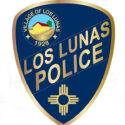BELEN — Trying to combat what one administrator calls an epidemic both locally and nationwide, Belen Consolidated Schools is outfitting its fleet of 21 buses with external cameras in the hopes of stopping dangerous behavior on the part of other drivers on the road.
“People running the bus stop signs is an epidemic across the nation,” said David Carter, BCS director of support services.
Late last school year, the district put exterior cameras on two buses.
“We have three to four reports a week from our drivers about people running the bus stop signs,” Carter said.
Now, all the district’s buses will have external cameras, as well as three inside the bus. BCS is the first district in the state to install external cameras, the director said.
In 2018, Belen Consolidated Schools bus drivers participated in the eighth annual voluntary survey of bus stop sign violations conducted by the National Association of State Directors of Pupil Transportation Services.
More than 20 percent of drivers in 38 states, plus the District of Columbia, participated, with 108,623 school bus drivers reporting that 83,944 vehicles passed their buses illegally on a single day that year.
The association estimated, based on those sample results, in a 180-day school year, more than 15 million violations could have occurred.
“And that number is probably much higher since not every state or all drivers participated,” Carter said.
While both the Belen Police Department and Valencia County Sheriff’s Office have indicated they are willing to issue citations based on footage and images from the cameras, Carter said the hope is the cameras will act as a deterrent.
“We just want people to stop, remember that they need to drive with caution and not run the signs,” he said. “We’ve had some close calls. On N.M. 304, a car brushed the backpack of a student.
“Just please, please, stop,” Carter said.
According to state statute, drivers approaching or overtaking a bus stopped on a road with its stop signal deployed must stop at least 10 feet from the vehicle.
A question of when to stop arises from the part of the law that speaks to a “separate roadway,” Carter said, and does not require drivers to stop.
“In speaking with several police officers and school transportation officials around the state, we are all in agreement that medians such as the drainage on N.M. 314 by Dennis Chavez Elementary and the curb on Main Street in Belen, near Reinken dividing the north and southbound lanes, are considered barriers and comply with the controlled-access as provided for in the statute,” he said.
“The dispute comes into play when we get down to areas such as turning lanes like South Main near the Belen Senior Center. Can the turning lane be considered to divide the north and southbound roadways or controlling access to the traffic lanes?”
Carter said in speaking with officers, while they had written citations to drivers passing buses in areas with turning lanes such as the one on South Main, they had been dismissed in court.
The district’s solution to that concern was to eliminate all stops that required students to cross four lanes of traffic, he said.
“The statute is clear on two lanes — both directions stop,” Carter said. “Until such time as the state Legislature cleans this up, it will be up to the officers to issue the citations and the courts to adjudicate, but until then the Belen district will watch out for our students.”
The new buses are paid for by state funds and the district paid for the camera systems, which are about $2,200 per system. Carter said the district was able to offset that cost by trading in several old buses that were replaced this year.
Of the 21 new buses the district is getting, 10 of them will be powered by propane, he said, with BCS joining about half a dozen districts across the state in a pilot program.
In 2014, Belen Board of Education member Larry Lindberg asked Carter to research the possibility of using propane buses in the district.
“I was a little resistant honestly, but after I started doing some research, I got really interested,” Carter said. “I even wrote a proposal to the state to do a pilot project in Belen.”
The idea didn’t seem to go anywhere at the state level but this year, someone capitulated and agreed to try them, he said.
“The propane buses do initially cost $8,000 to $10,000 more than diesel buses, but in the end, we will save money,” the director said.
The propane buses average about 5.5 miles to the gallon while diesel is close to seven miles, but given the cost difference per gallon for propane versus diesel, Carter said the district should realize between $20,000 and $25,000 per year with the 10 propane buses.
The district will use the diesel buses for trips longer than 200 miles, he said.
New Mexico is the last state to allow school districts to use propane-powered buses, Carter said.
“Other districts across the country have been using them for more than 20 years,” he said.
Initially, a propane truck will come to the district’s transportation compound to fill the new buses until the district can complete the process to have a tank installed on site.
“We have diesel on site now. Our mechanics do the filling now and will be trained on the propane as well,” Carter said. “The company we’ll be getting the propane from will come in and do training.”
The propane will be supplied by Ferrellgas, which is headquartered in the Liberty, Mo., area and has a refilling station in Albuquerque.
Ferrellgas is a vendor through the BuyBoard Cooperative Purchasing program, which the district recently joined to take advantage of the lower price point the cooperative negotiated with the gas company.
Julia M. Dendinger began working at the VCNB in 2006. She covers Valencia County government, Belen Consolidated Schools and the village of Bosque Farms. She is a member of the Society of Professional Journalists Rio Grande chapter’s board of directors.


















